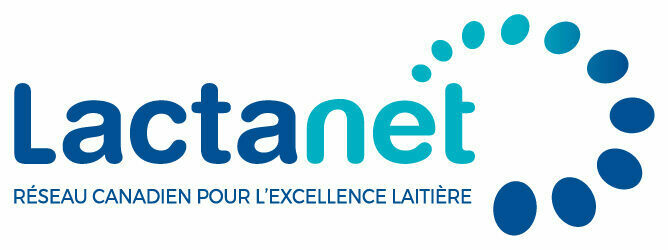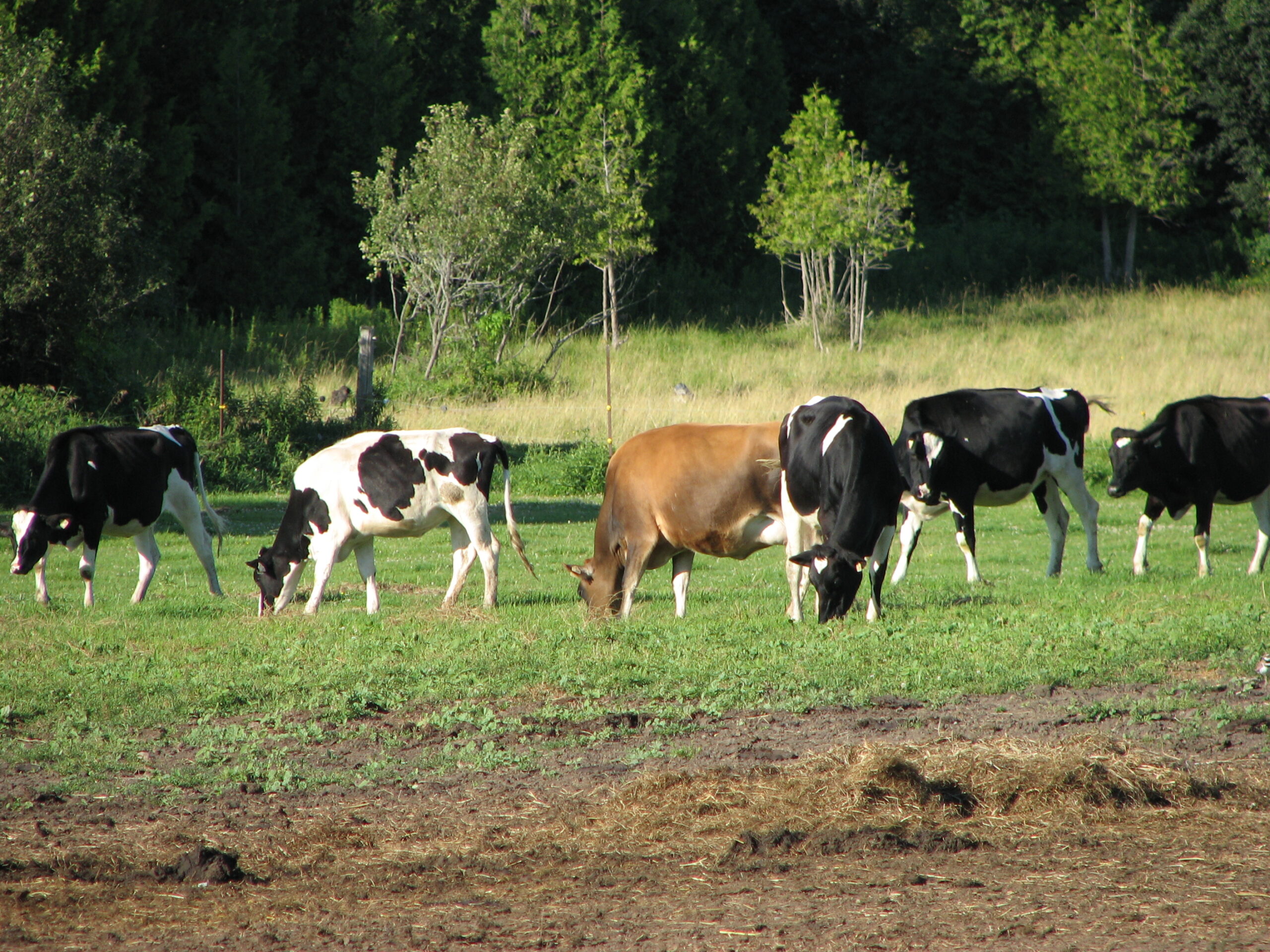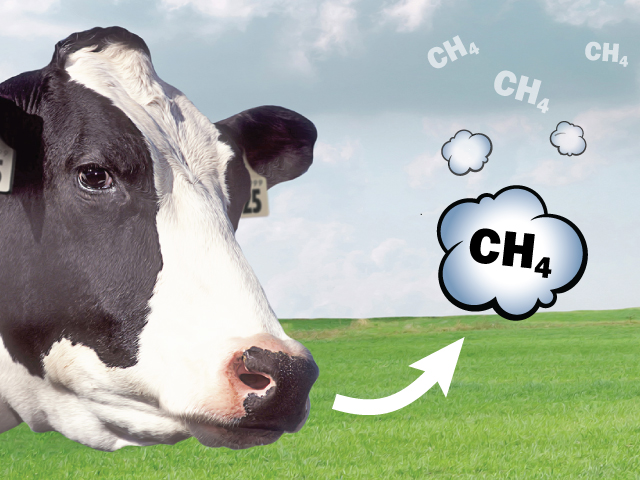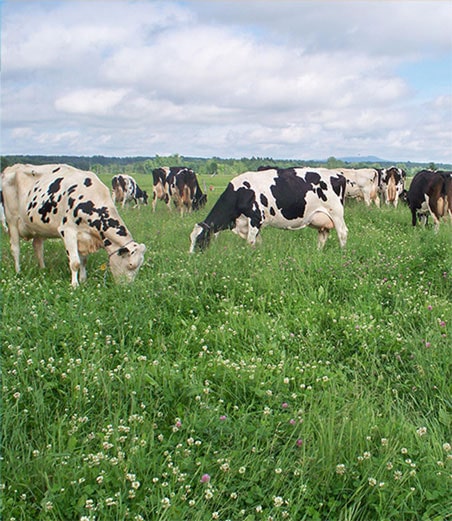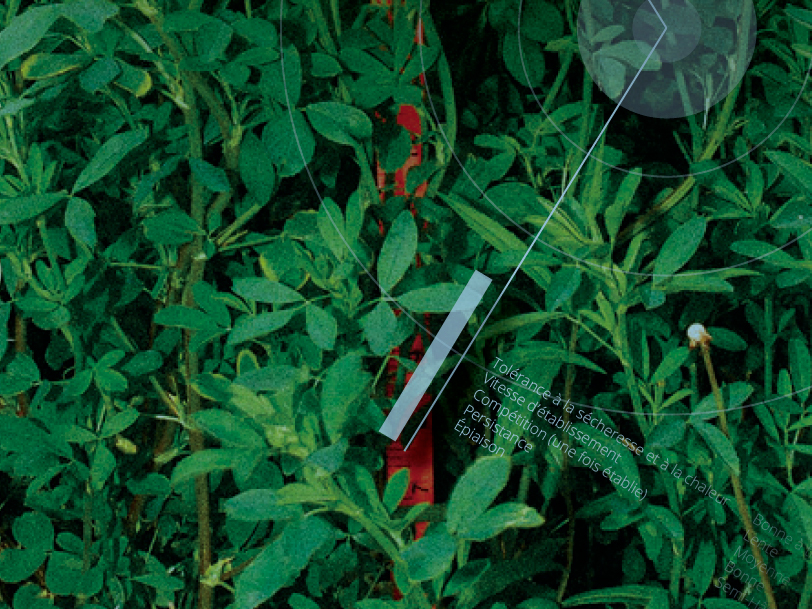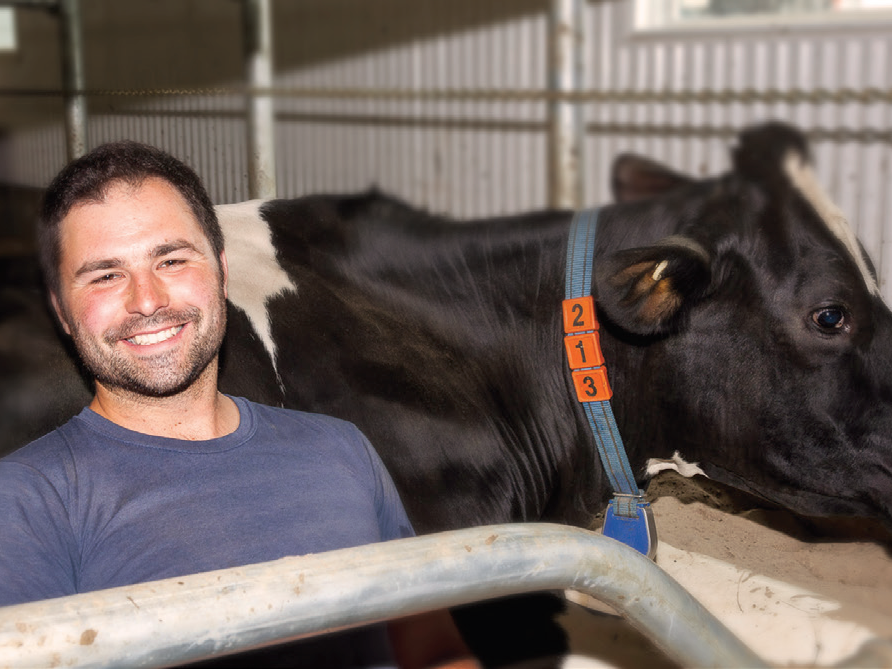Breaking the Taboos: Mental Health in Agriculture
- April 22, 2022
Beyond the barn, there’s you and your family. That’s what a sustainable business is all about. As part of Mental Health Week, we talk to Martine Fraser, a farm outreach worker with Au coeur des familles agricoles (ACFA).

Agriculture Tattooed on the Heart
Martine tells us where her love for the agricultural community comes from: “Being the daughter and spouse of a farmer, it goes without saying that I know the agricultural reality very well. When I’m not wearing my outreach worker’s hat, I have my steel-toe boots on and I’m in the barn. Being a farm outreach worker is a perfect combination of my two passions: the complexity of people and the beauty of the agricultural world.”
“As a farm outreach worker for the ACFA1 organization, I offer support and guidance to producers and their family members. Many challenges can be discussed such as stress, work overload, conflicts, career questioning, etc. My objective is to provide producers with the tools they need to continue their work while taking care of their psychological health,” says Martine.
The Challenges of Agriculture
The agricultural sector is very demanding and sometimes its workers feel powerless in the face of certain situations in their daily lives: “Agriculture, with its many challenges, sometimes causes producers to experience a significant amount of stress. There are few occupations where the people involved have to juggle with so many unknowns over which they have no control. Producers must learn to deal with the whims of the weather, fluctuations in world markets, food trends, environmental policies, etc. Even oversea conflicts influence us here! The isolation that comes with the job is also an inherent factor of farming and increases the psychological toll.”
“All of this put together can be a lot for one person to handle! That’s why having a psychosocial support service adapted to your situation makes all the difference,” explains Martine. The important thing is to surround yourself with the right people who can understand your reality and with whom you will feel comfortable to talk to.
Tips for reducing stress at work – Question yourself regularly:
- How is my energy today?
- How is my fatigue level?
- What is my stress level?
- Does everything have to be done by today?
- Could I delegate?
- Is this really a priority?
Asking for Help is a Strength
Tips for reducing stress at work – Take the time to take time:
- Slow down and be grateful
- Find activities that make you feel good outside of work
Martine's Question
We asked Martine: What is the one question you would like to be asked about mental health to break down the taboos in the agricultural sector?
“Does it really make a difference to see a farm outreach worker or a psychological assistant? The answer is YES.”
“Being listened to, understood, heard, and validated in what you are going through is priceless. It really does allow you to see changes. You also have the power to influence your peers by destigmatizing the demand for mental health help in the agricultural world. The more we talk about it, the more we are able to have a united and healthy agricultural community.”
Need help
- From anywhere in Canada, call 1-833-456-4566 or text 45645;
- For Quebec resident, call 1-866-APPELLE (1-866-277-3553);
- If you or a loved one is in danger, call 911.
1 Quebec Producers: The organization also works in collaboration with organizations and resources in each of the Quebec territories and offers, if needed, a respite home service located in Saint-Hyacinthe. ACFA works mainly in French, but anyone requesting services will have access to a caregiver.
